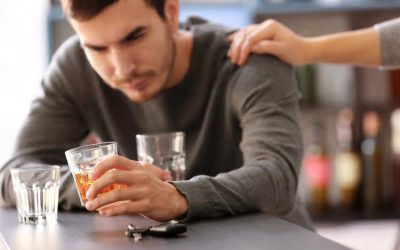Step 1 A A. Why the 12-step Journey Begins with Powerlessness FHE Health
It’s easy to misunderstand the meaning of being “powerless over alcohol.” It does not mean powerlessness in recovery. Life has become unmanageable – which means it’s impossible to control. Step 1 of Alcoholics Anonymous is admitting this fact, that alcohol currently holds the controls of your life.
Professional Treatment Options
Choose statements from the list below to combat the mistaken or faulty beliefs you’ve identified from the overt or subtle ways of denying your own powerlessness above. Alternatively, you can use this entire list as a daily affirmation to support you in your recovery. Unmanageability means you don’t have the self-will or the tools to take control of the triggers around you. At this point, it is time for intervention and professional help if you want to regain control of your life. Soon, however, these restless feelings come up and they are truly unmanageable. Frothy emotional appeal seldom suffices; family members cannot stop the feelings, gratitude lists, exercise.
Here’s an exercise that can show you the value of being powerless. For example, other people’s actions, the reality of addiction, the past, other people’s emotions, and the list goes on. Unmanageable is only printed once in the first 164 pages of the Big Book of Alcoholics Anonymous, which in the first step. It’s left many people to interpret what unmanageable means in the book. In the rooms of Alcoholics Anonymous, there are several different viewpoints that you can hear about unmanageability.
This many awesome people have been here…
Most examples of powerlessness in sobriety have to do with admitting that you cannot change your behaviors on your own. Getting help from others at a treatment facility and in peer recovery groups can benefit your sobriety. Recognizing powerlessness is not just about acknowledging Twelve-step program addiction—it’s also about understanding the risk of relapse. Many people struggle with relapsing because they underestimate their powerlessness and believe they can “control” their substance use.

How Samba Recovery Supports Young Adults in Recovery
- In these settings, the sense of losing control can contribute to increased anxiety and depression.
- Developing life skills and enhancing personal resilience through workshops or educational programs equips individuals to navigate challenges effectively.
- Breaking the isolation of addiction is a pivotal outcome of Step One.
- This phenomenon explains why casual drinkers can stop after one or two drinks, while we spiral into destructive behavior.
- This cycle of disadvantage perpetuates a sense of helplessness and diminishes overall well-being.
Each person’s spiritual journey is unique, and finding what brings meaning and strength is a personal exploration. This approach fosters self-awareness and encourages individuals to realize the damaging effects of substance abuse. It guides them toward a desire for a healthier future, free from addiction’s chains. If you still think you can control your drinking, you most certainly will again.
Many treatments complement Step 1 in AA and can be combined with a variety of recovery supports. Admitting your alcohol use is out of control and you need help requires courage and humility, not weakness. These discussions with a sponsor help with the acceptance process.
The fear/shame power dynamic involves insecurities and anxieties that can manifest in one or both partners, often linked to past unresolved traumas. This dynamic may result in avoidant behaviors or aggressive reactions, further complicating the relationship. Open communication and trust are essential to address these underlying issues. The demand/withdrawal dynamic is a common interaction pattern in which one partner expresses needs or complaints while the other partner responds by avoiding the issues raised. This imbalance often leads to misunderstandings and prolonged conflicts over seemingly trivial matters. The partner who is demanding may feel frustrated and unsupported, while the withdrawing partner may feel overwhelmed and disconnected.
Recovery is possible, and healing can transform your mind, body, and spirit. At Enlightened Recovery, we offer a holistic, 12-step inspired, clinically proven program for alcoholism and co-occurring disorders. A person with alcohol addiction feels powerless because his or her behavior https://ecosoberhouse.com/ changes in ways that would not happen when sober.

Furthermore, it gave me the opportunity to wake up to the reality of the disease of addiction. Understanding how powerlessness affects relationships can offer a clearer perspective on the emotional landscape individuals navigate in their partnerships. Those experiencing these dynamics might benefit from exploring strategies that promote empowerment and foster healthier communication patterns.
It involves acknowledging and accepting that addiction is a complex force that cannot be controlled or managed through sheer willpower. By recognizing powerlessness, individuals can let go of old patterns, seek support from others, and develop healthier coping mechanisms. Step One AA is fundamentally about honesty, while active addiction is characterized by denial. The ways one tells themselves and everyone around them “see I’m okay” when they powerless over alcohol examples most likely are not.
What is Admitting Powerlessness Over Alcohol or Drugs?
Once acknowledged as powerless over alcohol and/or other drugs, there seems to be no hope left. Consequently, admitting powerlessness is what provides you with strength. This may feel counterintuitive, but if you are absolutely convinced you cannot drink, then nothing can make you return to it. At Ridgeline Recovery, we offer personalized treatment plans to help you regain control and build a better future.
- This concept highlights the overwhelming compulsion to drink despite the negative consequences it brings, such as health issues, damaged relationships, and financial problems.
- Vulnerability is often considered a weakness, but in the context of Step One, it becomes a source of strength.
- AA members believe they cannot control their drinking without the help of a higher power.
- One of the most remarkable aspects of Step One is its enduring impact throughout the recovery journey.
Questions to Assess Your Powerlessness & Unmanageability
This became the 12 Steps of Alcoholics Anonymous, which they offered as a path to finding freedom from alcohol addiction. But, since it was the way that had worked for them, it was the way they had to offer others. Seeking help through professional treatment, support groups, and personal development tools is the best way to start your journey to recovery. Addiction treatment centers, therapists, and support groups provide the structure and guidance needed for long-term recovery. Ridgeline Recovery offers customized treatment plans to help individuals regain control. Adam Vibe Gunton is an American author, speaker and thought leader in addiction treatment and recovery.